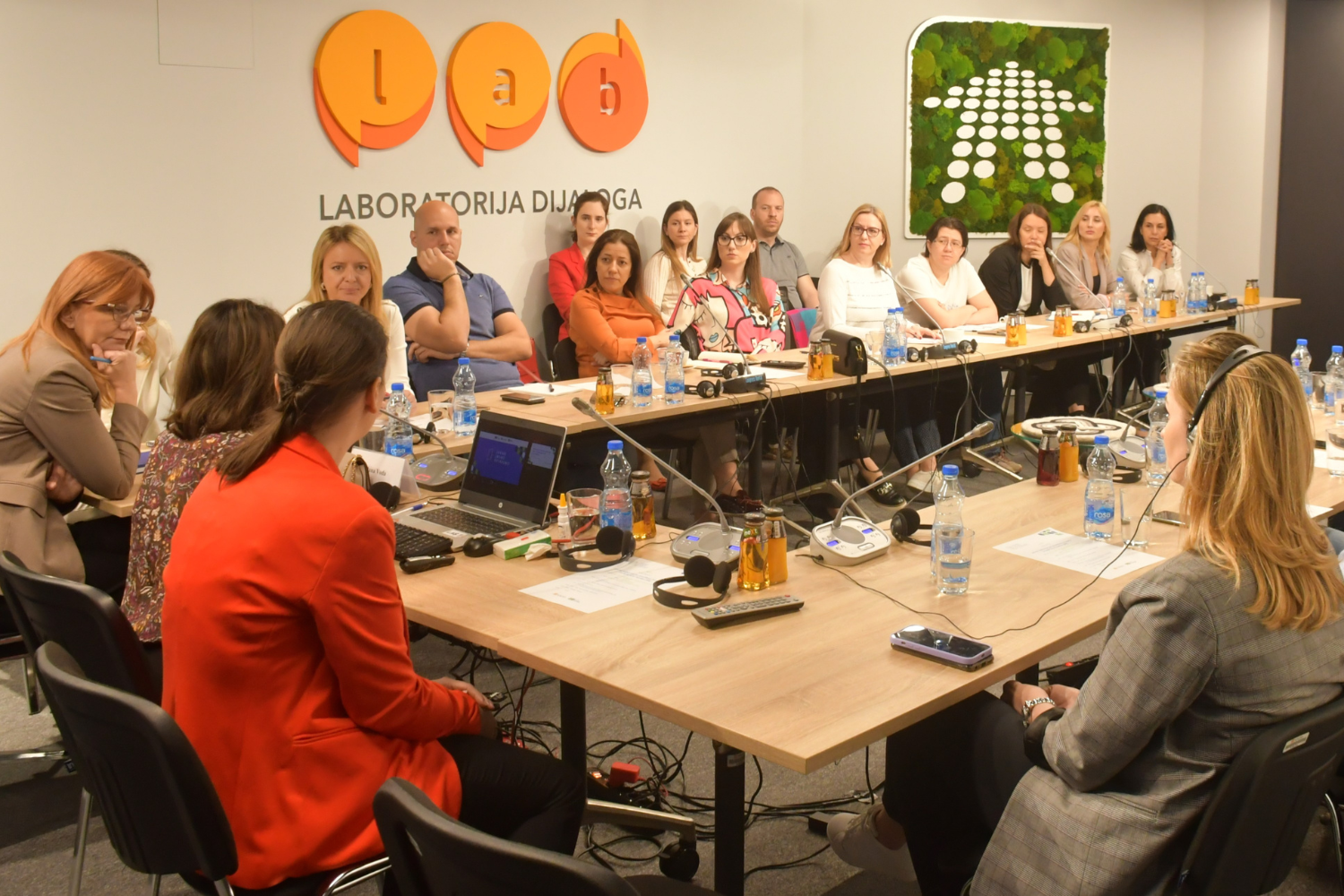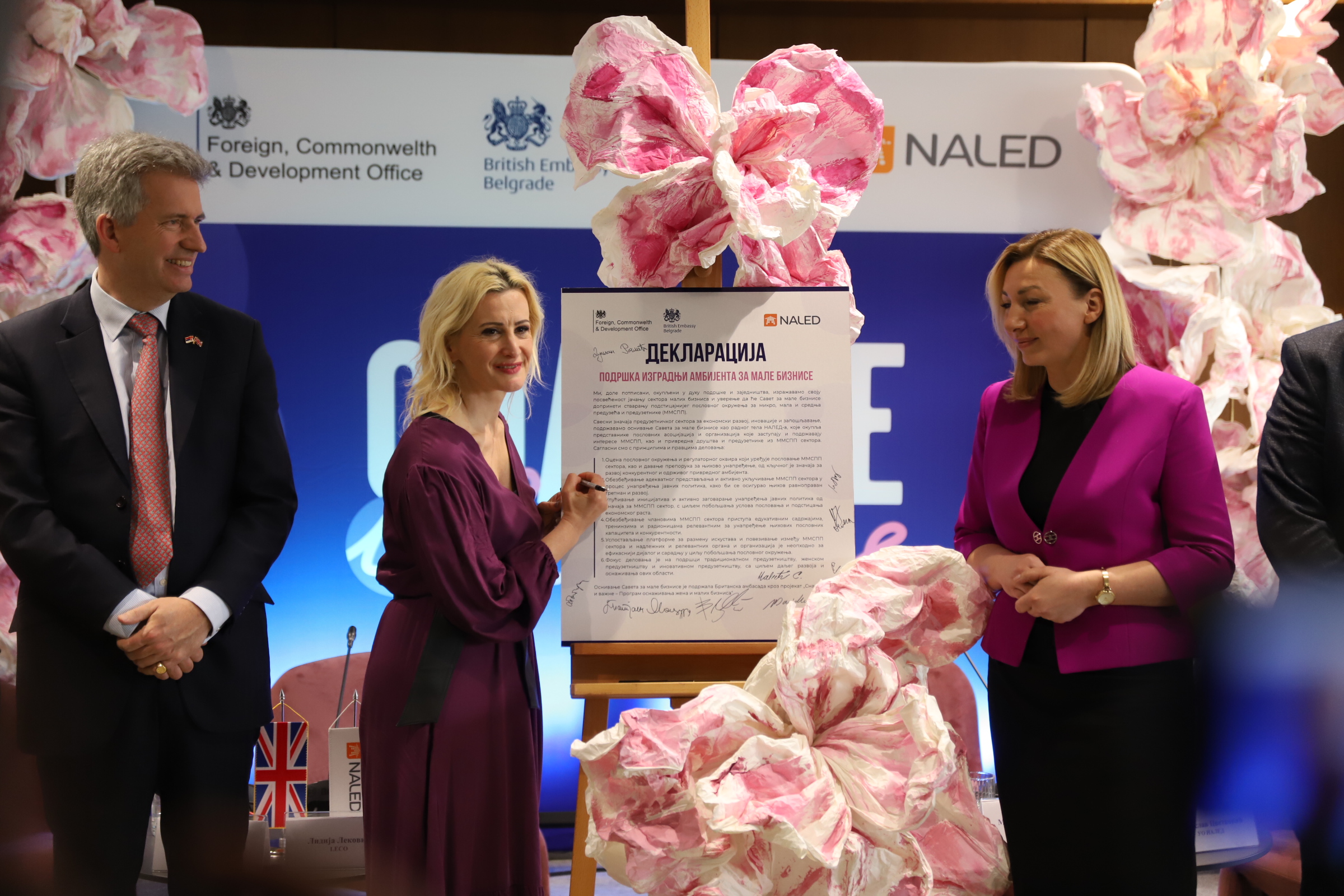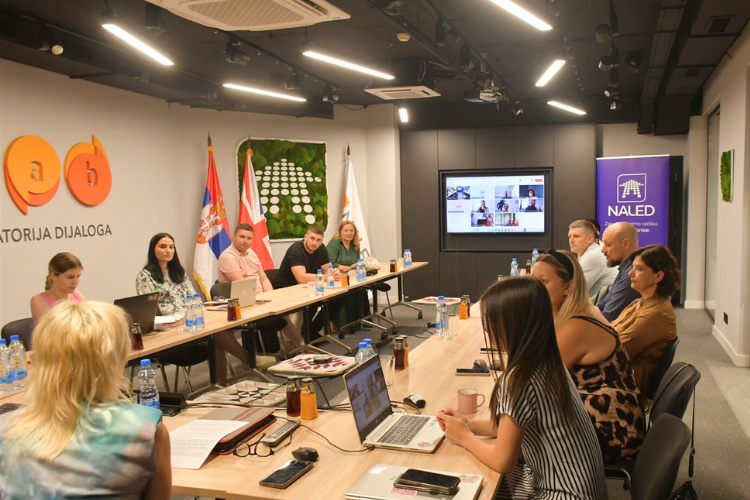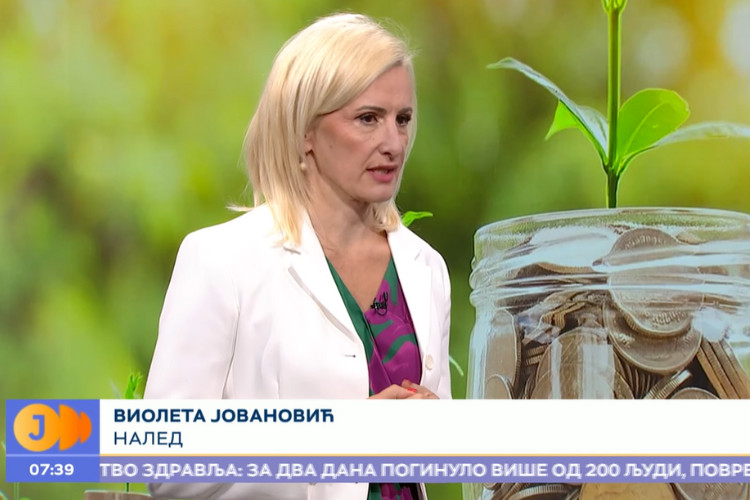NALED's Small Business Council proposes 10 priority measures to make doing business easier
The adoption of the Law on Encouraging the Development of Entrepreneurship, the introduction of a single account for the payment of tax obligations for lump-sum payers and the advisory, instead of punitive role of tax inspections towards new entrepreneurs - these are just some of the 10 priority recommendations of the NALED Council for Small Businesses, which are part of a wider agenda of 100 reform proposals aimed at creating better business conditions and reducing administrative barriers for micro, small and medium-sized enterprises and entrepreneurs in Serbia.
The leadership of the Council was also presented at the meeting - Dušan Roglić (Roglić Company) was appointed president, while Marija Tasić (Tasić & Partners) for the field of women's entrepreneurship, Miloš Praštalo (MNP Advisory) for innovative, and Sofija Popara Parmaković (Clever) for traditional entrepreneurship were appointed as president. Roglić pointed out that the goal of the Council is to contribute to reducing administrative barriers and simplifying procedures through dialogue and concrete proposals.
- Small businesses struggle with complicated rules and regulations every day. Our task is to provide more efficient mechanisms through the Council and create better conditions for their growth and development - said Roglić.
The Council identified three areas that require special attention - women's, innovative and traditional entrepreneurship - and selected 10 of the 100 mapped obstacles that will be dealt with as a matter of priority in the coming period.
- Our focus will be on advocating for recommendations that come directly from the operations of small businesses, those that until now have been insufficiently visible and whose voice is rarely heard in the institutions that create the business environment. It is precisely in the diversity of the members of the Council - from traditional to innovative entrepreneurs - that there is an opportunity to recognize different problems and offer solutions - said Irena Đorđević Šušić, head of the innovation and entrepreneurship unit of NALED.
In the field of female entrepreneurship, the need for equal treatment of female entrepreneurs in terms of pregnancy, maternity and child care leave is particularly emphasized. The introduction of phased support for self-employed women through training and higher subsidies was also recommended. For the further growth of the innovation ecosystem, it is important to enable the use of global digital payment services such as PayPal and Stripe, as well as to recognize the research and development costs that startups cover from grants as an expense in the current year, which would improve their liquidity.
For traditional businesses, the priority is the re-introduction of the tax credit and the harmonization of the lump-sum income limit with the VAT threshold, with the possibility that those who exceed the limit of 6 million dinars will switch to the regime of payment of personal earnings. It is also planned to expand the assistance that family members can provide to entrepreneurs without establishing an employment relationship, as well as the introduction of a single account for tax obligations, whereby payments would first be used to settle the oldest debts.
As a reminder, within the framework of the "Strong and Important" project, with the support of the British Embassy, NALED established the Council for Small Businesses in the spring of this year.







